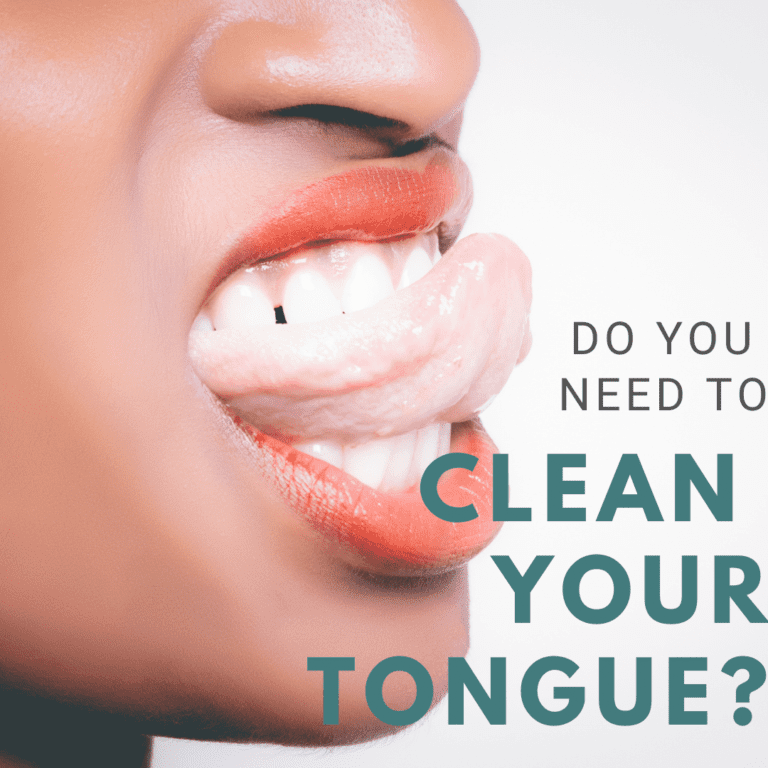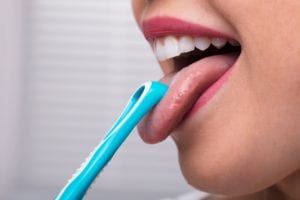Do You Need to Clean Your Tongue?

Most of us have been told that brushing and flossing daily are important parts of keeping our teeth and gums healthy. In fact, the American Dental Association formally states that brushing twice a day for two minutes and flossing daily can help prevent dental issues such as tooth decay and gum disease. However, our teeth and gums are not the only structures located inside our mouths. What about our tongue? If we brush and floss to protect our teeth and gums, should we also be cleaning our tongue?

It definitely can’t hurt since debris, bacteria, and dead cells tend to build up on the surface of your tongue over time. Not only can this cause bad breath, but it can negatively impact your oral health. Cleaning your tongue can help to reduce bad breath and keep bacterial populations at bay. However, keep in mind that bacteria will continue to accumulate as you eat and drink, so bad breath may come back after you clean your tongue.
Still, there are many benefits to cleaning your tongue, including:
- Removes bacteria such as mutans streptococci and lactobacilli that are responsible for bad breath and tooth decay
- Improves the appearance of your tongue by removing excess debris that makes your tongue appear white and chalky
- Improves your sense of taste
- Reduces bad breath by removing odor-causing bacteria
- Improves your overall health by removing bacteria and decreasing your risk of cavities, gum disease, and other health conditions
With so many benefits to cleaning your tongue, you may now be wondering just how to do it. For starters, you will need to purchase a tool called a tongue scraper. Tongue scrapers are available in plastic, copper, and stainless steel. Any material should work as long as the tool has a slightly rounded shape that contours around the tongue. Although some people believe that simply brushing their tongue with their toothbrush is enough, studies show that tongue scrapers remove 30% more compounds from the tongue’s surface. Until you can purchase a tongue scraper, using a toothbrush is better than nothing at all.

After purchasing a tongue scraper, the next step is to figure out just how to use the thing. Luckily, using a tongue scraper is pretty easy. To start, you will want to stand in front of your mirror and stick out your tongue. Then, gently place the rounded edge of the tongue scraper at the back of your tongue. If you have a sensitive gag reflex, then you may want to start at the middle of your tongue and slowly work your way back as you get accustomed to tongue scraping.
Once you have the scraper in a comfortable position on your tongue, gently and slowly pull it forward towards the tip of your tongue. When using a tongue scraper, you will always want to move the scraper from back to front and never from front to back. Each time you scrape, you will want to remove the scraper and wipe it with a washcloth to remove the debris before sticking it back in your mouth. You will repeat this process as many times as it takes to clean the entire surface of your tongue. After you are done, you will then need to wash your tongue scraper with warm water and soap. Then dry the scraper and store it in a clean, dry area until the next use.
As you can see, using a tongue scraper to clean your tongue is pretty straightforward. Adding tongue scraping to your daily oral hygiene routine can help to keep your breath fresher and can be beneficial to your oral health. However, it is important to note that tongue scraping is not a replacement for regular brushing, flossing, or dental cleanings.






Recent Comments